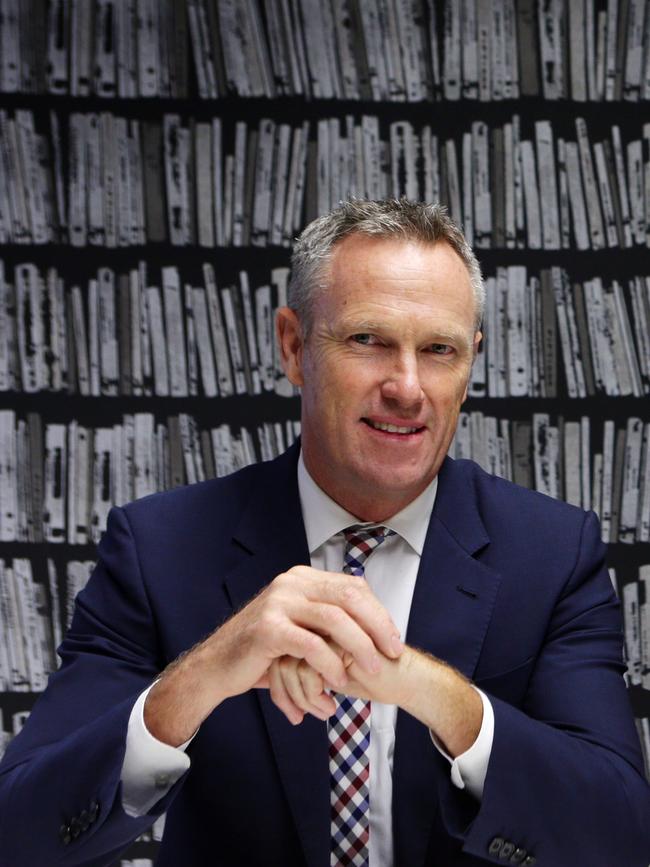Companies ‘blind to rising activism’
Companies could argue they had acted lawfully and yet discover ‘suddenly that’s no longer relevant’.

The top-down structure of global corporations is a major barrier to their capacity to respond to community activism on issues ranging from employer quality, diversity and sexual harassment to environmental and tax issues, according to a leading analyst of corporate reputation.
Thomas Clark, senior associate partner at Statista Group, said social media had changed the landscape in the past 10 to 15 years. Corporations including Rio Tinto — whose CEO stepped down last week, along with two other senior executives — could argue they had acted lawfully and yet discover “suddenly that’s no longer relevant”.
“Companies spend massive amounts of energy to make sure that everything is done according to the law, and then there is still outrage,” he said from his base in Germany.
“In the 20th century if you had a big PR department, and sometimes you didn’t even need that, then it was always fine. Now you have lateral communication, networks and social media and issues spread much more quickly. It is not that easy when companies are structured top-down to actually address that.”
Dr Clark said companies with huge recruitment and employer branding budgets often became annoyed about negative comments posted on social media, but ultimately it was difficult to ignore these.
It used to be easier for corporates to have a stellar reputation but they had to realise that in a world in which it was easier to voice criticisms they needed a different culture of accepting criticism. Founder-CEOs like Elon Musk and Jeff Bezos had a different culture of communication and to some extent could endure criticism, while the more traditional corporate world “is just not used to that”.
Dr Clark said the heritage issues that confronted Rio were similar to society’s changing attitudes about food processing.
“As a society we have institutionally decided to look away,” he said. “We know how animals are treated is not very nice but we have decided that we don’t want to see that. It’s the same with raw materials — they come from whatever countries, whatever regions, why should we bother?
“A CEO will say, we did everything we were supposed to do, we had permission, what else should we have done? Should we have run an opinion poll on Facebook before we did anything, what did we really do wrong? But the rules that we think are relevant — when it comes to a real blow-up — they are suddenly irrelevant.”
Social licence to operate
Brian Tyson, managing partner of communications specialists Newgate Australia, said the pressure on corporations over their social licence to operate had become “quite phenomenal” over the past decade.

“Everyone is a reporter now and everyone is able to access information rapidly, so things that might otherwise have been a story on Friday and forgotten by Monday linger on with social media,” he said.
He said companies sometimes reacted too quickly to pressure from well-organised campaigns “whereas the reality is that the community doesn’t feel like it is an issue”.
“There is a typical bell curve of community sentiment which can be applied to pretty much every issue,” Mr Tyson said. “There is 10-15 per cent opposed actively; 10-15 per cent actively supportive; and the rest in the middle are the ‘don’t know, don’t cares’.”
Companies often reacted to the 10-15 per cent yet it was important to understand what those in the middle thought about an issue and how they might respond. There was a real hunger from companies for quick turnaround polls to assess community sentiment beyond the activist campaigns.
Oliver Freedman, managing director of RepTrak, which assesses corporate reputation, said it was important to look at other events happening at the same time when companies came under pressure. Clearly, the Black Lives Matter movement had an impact on the Rio issue, he said.
He said Rio’s ranking in RepTrak’s corporate reputation index was 42 this year out of the top 60 companies, compared with 52 in 2019. The 2020 data had been collected in February and March and since then Rio’s reputation had fallen back into the 50s, even while other companies had improved their reputations during COVID-19.
Mr Freedman said that strong perceptions of corporate leadership had historically been built on a company’s financial success, but now it was “also very much about perceptions of how leaders deal with the key components of ESG (environment, social impact and governance).”







To join the conversation, please log in. Don't have an account? Register
Join the conversation, you are commenting as Logout